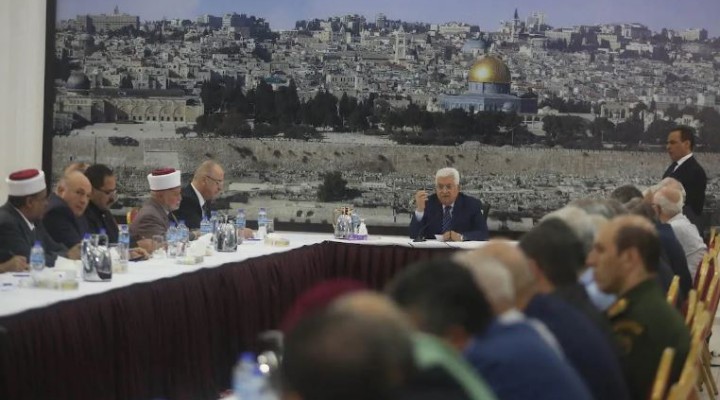The Palestinian Authority’s privilege and freedom of movement

The Israeli government’s new sanctions against Palestinians include punitive measures for Palestinian Authority officials related to their freedom of movement. In response to the UN General Assembly resolution titled “Israeli practices and settlement activities affecting the rights of the Palestinian people and other Arabs of the occupied territories,” which seeks the International Court of Justice’s (ICJ) ruling on Israel’s occupation and apartheid, Israel, last week, withdrew the PA’s Foreign Minister Riad al-Maliki’s VIP card which allowed him to travel unhindered.
In a statement, al-Maliki declared, “We will call, in a letter to foreign ministries around the world, to take a clear position on these measures so that the occupying power realises that it is not completely free to act as it pleases.” Just as well that al-Maliki is a politician propping up the international impositions on Palestinians and the international community may exert some influence, and not an ordinary Palestinian for whom travelling is never a secured right, due to Israel’s restrictions on free movement and the international community’s silence.
The argument for winning public opinion is still relevant, although relevance does not necessarily translate into meaningful steps against Israel’s colonial apartheid entrenchment. But more significant issues are at stake than al-Maliki’s VIP pass. Al-Maliki is now confined to the occupied West Bank, at least temporarily. But millions of Palestinians have been confined for decades. Upon what grounds will al-Maliki choose to make his defence? And will the PA exploit the pursuit for influencing public opinion to reinstate its privilege? Upon what grounds can the PA claim credibility upon free movement if all it seeks to resolve is the VIP status granted by Israel?
If the PA thinks it has won any ground as a result of the UN General Assembly resolution, it should consider its political trajectory. All the PA has so far accomplished for Palestine in the international arena constitute symbolic moments affirming what international law already constitutes to be a violation. However, if one considers what the PA has accomplished against Palestinians, the list would read like an extension of Israel’s colonial violence, particularly the persecution and detention of Palestinian civilians who openly defy the PA.
PA officials cannot experience being ordinary Palestinian civilians. Having their VIP passes revoked by Israel is an infringement, but the situations are completely different. The PA is being penalised for irking Israel over a resolution, while Palestinians are punished for their existence and their anti-colonial resistance. Freedom of movement, while a human right, takes on different and specific connotations when considering that the PA is not averse to accessing privileged movement, as opposed to wanting freedom of movement for all Palestinian people.
The VIP pass is a colonial imposition which the PA has accepted to facilitate its privilege. Freedom of movement in such a case is compromised. But what about the millions of Palestinians who are being held hostage by Israel, the PA and the international community? If al-Maliki’s VIP pass is reinstated, will the PA differentiate between freedom of movement and privileged freedom of movement?
https://www.middleeastmonitor.com/20230114-the-palestinian-authoritys-privilege-and-freedom-of-movement/
 TheAltWorld
TheAltWorld 
0 thoughts on “The Palestinian Authority’s privilege and freedom of movement”